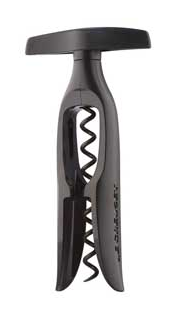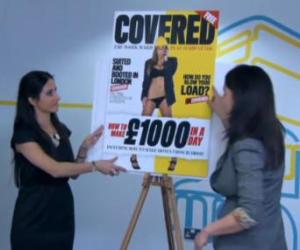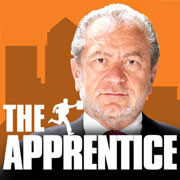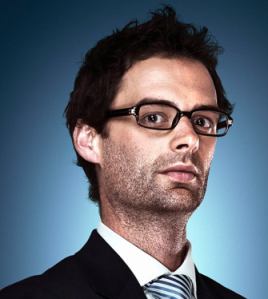 Tonight as night as part of Global Entrepreneurship Week we held another great Inspiring Entrepreneurs. This time the topic was Question Time for Entrepreneurs, and was a chance to grill our assembled panel of experts.
Tonight as night as part of Global Entrepreneurship Week we held another great Inspiring Entrepreneurs. This time the topic was Question Time for Entrepreneurs, and was a chance to grill our assembled panel of experts.
Emma Bridgewater, Chairman and Founder of Emma Bridgewater Ltd, Vernon W. Hill II, Co-founder and Vice Chairman of Metro Bank, Lara Morgan, Founder of Pacific Direct Group Ltd and Company Shortcuts Ltd and Tim Campbell, Founder of the Bright Ideas Trust.
Jonathan Moules, enterprise correspondent at The Financial Times, was in charge of moderating the team.
 Emma Bridgewater admitted her business was more home counties than ‘wild west’.
Emma Bridgewater admitted her business was more home counties than ‘wild west’.
You will have to go through tough times. So even if you don’t feel strong enough, when it is your company, you feel differently about it.
You will surprised how creative you can be in business when you first start out and have no money.
Having to think about accounts was something unpleasant, but necessary.
Her value add, was to make modern dishwater friendly pottery.
‘We have spent ‘shed loads’ of money trying to protect our designs. I don’t think it is possible to protect them.’ The next new design is the key to success. And your brand.
 Vernon W. Hill II managed to extend his five minute introduction into an impassioned 15 minute talk about the amazing success of his banking ventures.
Vernon W. Hill II managed to extend his five minute introduction into an impassioned 15 minute talk about the amazing success of his banking ventures.
Be aware of the brand hierarchy: Basic brands,
Emotional Brands and Legendary Brands. When you reach the top stage you have fans not customers.
You need a clear business model that differentiates you from the competition. The culture of your company must be unique but matched to your business model. Your business execution must be fanatatical
In the US they gave away 28 million pens, and they were trying to get the number up. They let dogs in on the theory that if you love my dog, you must love me.
Metro Bank have 90 percent customer satisfaction rate, Barlcays has minus 35 percent.
Emotional brands create massive value. Look at the example of Apple who grew from a five percent market share less than 10 years ago.
Are you really emotionally and equipped to go down the entrepreneurial road? Ask yourselves does your product or service add value? What is different about you? Successful entrepreneurs start with the end result, not the process of getting there. In the UK we concentrate too much on the technicalities.
He went through 15 years of the press saying ‘this won’t work’, so having a thick skin is essential.
Ninety percent of people they see looking for investment don’t have a business plan, they just have hope. Not good enough! If you don’t have convincing numbers to raise money you will fail.
‘My problem is dealing with the government every day!’
In the US they were recruiting 6,000 jobs a year, most came from existing staff contacts. If they didn’t smile in the first interview then they were out.
 Lara Morgan.
Lara Morgan.
The ability to just keep going is vitally important. Jack of all trades and a master of one, where you recruit others to fill in the other roles required.
She worked on her own for two years, morning, noon and night. Her first recruit was a ‘gobby’ hocky player who had the ability, and could be taught the skill required.
Be aware that you can recruit people if you are creative as employers, find out what will lure someone in other than money.
You can actually learn lots of good stuff from books. This is a solution Lara has applied on many occasions.
Understanding finance was a painful part of becoming a successful business. You don’t need to to do the numbers, you do need to understand them.
Finding the right staff, means being utterly rigorous in you recruitment process. Make sure you test skills, because there is a lot of flannel from candidates. Check with your receptionist for their behaviour. Maths, English and culture tests are key. Invest time in this and you will be rewarded.
It took several years to work out what our USP was. It became representing the best products to the best hotels. A key to this was understanding the market place and the competition better than anyone else.
There are very few new ideas, so you just need be aware of how you are different and better.
 Tim Campbell
Tim Campbell
There is a huge value in mentors and advisors. Having a wise head behind you will help solve some of your issues. Having a loyal team with you on your journey will be a key to your success.
Entrepreneurs need to learn to rely on others to deliver the expertise required for the business.
You may need to extend your sales technique to family and friends in order to raise capital for your business. However, business angels are sitting there waiting to find ideas to invest in. There needs to be a better way to bring these two together.
You can’t expect people to invest in your idea if you aren’t prepared to stand by the loan, or put in your own money.
Employing people who don’t have the same passion as you do, is the biggest problem. Managing them out is incredibly difficult. You need to be incredibly clear about what you want from your recruits.
Don’t compete on price, there will always be someone cheaper.
Intellectual protection can be a very costly route to protect something that may not be unique enough. Speed to market is your best protection.
You can learn from other first mover’s mistakes.
The time to pull the plug on his business, was when he realised he could not get the 2,000 outlets needed to reach the minimum size. There is an inner voice you can hear when you go to sleep at night. Listen to it, and to advisers you trust.
There is nothing wrong with a lifestyle business (small scale).
Video now live here, Question Time for Entrepreneurs 2011 by BIPCTV’s channel
Question Time for Entrepreneurs 2011
by BIPCTV’s channe
 It never ceases to amaze me how innovative our customers in the Business & IP Centre are. In just the last couple of weeks I have been helping visitors who have re-invented the most iconic of household products, the umbrella and the corkscrew.
It never ceases to amaze me how innovative our customers in the Business & IP Centre are. In just the last couple of weeks I have been helping visitors who have re-invented the most iconic of household products, the umbrella and the corkscrew. The next encounter was with an older customer who wanted to find sales figures for corkscrews in the UK. Once again, we were not able to locate a market research report on this niche product. However we did manage to locate a few articles estimating sales and covering trends in the market.
The next encounter was with an older customer who wanted to find sales figures for corkscrews in the UK. Once again, we were not able to locate a market research report on this niche product. However we did manage to locate a few articles estimating sales and covering trends in the market.












